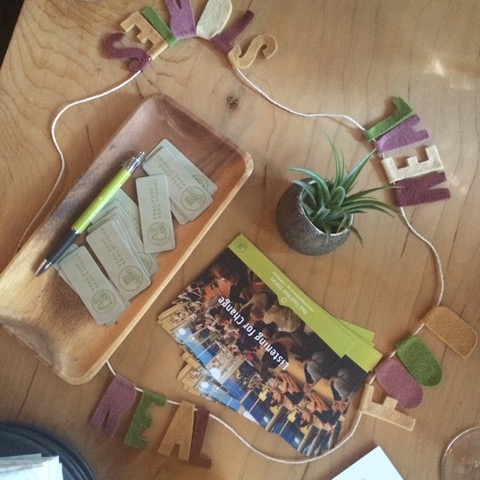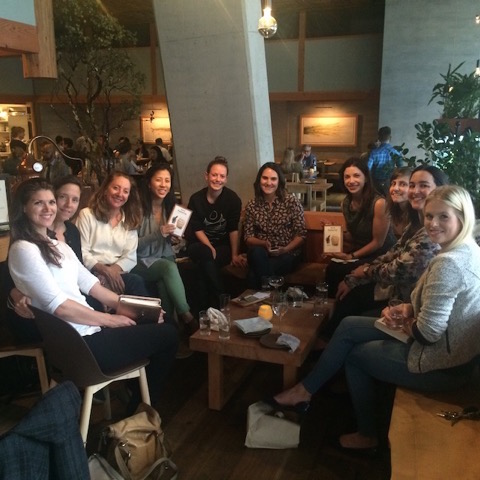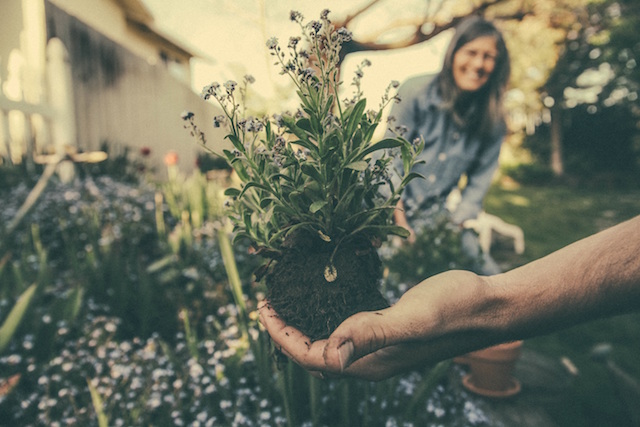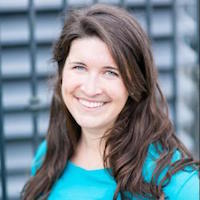About one in nine (~795 million) people today do not have enough food to lead a healthy active life, while 40 percent of food in the U.S. goes uneaten.
Those with sufficient food access may not even be guaranteed adequate nutrition, because of the way we source, prepare, and consume the substances we eat and drink today.
Autoimmune conditions, for instance, appear to be skyrocketing. According to a 2012 research plan written in 2002 by the National Institute of Health (NIH), about 3.2 percent of the US population had at least one disease on the list, where today the number is more in the range of 5-8 percent.
What are autoimmune conditions and why do they matter? Commonly known conditions include rheumatoid arthritis, multiple sclerosis, and type 1 diabetes, although there are dozens of others. These chronic, debilitating diseases can leave those affected with social and financial burdens, including poor quality of life, high healthcare costs, and loss of productivity. Furthermore, the rise in autoimmune conditions have been connected to factors prevalent in the modern, developed world, including but not limited to diet, pesticides, added hormones, and antibiotics.
The statistics on disease prevalence, world hunger, and food waste clearly highlight our planet’s need for systemic healing among these integrated categories.
It was just that desire for personal healing that led Pei-Ru Ko, Director of Real Food Real Stories (RFRS), to move to the San Francisco Bay Area in 2011, when she was suffering from an autoimmune condition. Through her personal struggle and search for healing on a personal and global level, came the birth of her non-profit organization. RFRS’ mission is to “humanize the food system and to uplift local changemakers through authentic storytelling to connect and inspire eaters to social actions.”
Pei-Ru found healing in more than just the physical elements of her food choices. Although these were important, she also found healing in community, and today claims she doesn’t know which healed her more—the food or the people.
Prior to the discovery of food and community-based healing, Pei-Ru describes her initial days in the Bay Area as, “So lonely, so challenging, and so sick.” She didn’t have friends nearby. She wasn’t finding relief in Western medicine. So, she enrolled herself in a culinary program for therapeutic cooking, and began seeking alternative methods of healing.
Each week, she would travel to the local farmer’s market to buy produce. It was there that she met Michelle, owner of Nana Joe’s Granola which makes farm-sourced, vegan, and gluten-free granola that Pei-Ru could eat without feeling ill. As she dove deeper into her food intolerances and sensitivities, however, she discovered she could no longer tolerate grain at all. Devastated by the loss of her excuse to visit Michelle for a weekly “dose of human warmth,” she realized their interactions had become about more than the granola—the visits were about connection as much as anything food-related.
The next time she went to the farmer’s market, she told Michelle about her plight. Without thinking twice, Michelle responded, “I am so sorry to hear that! Come to my kitchen on Wednesday, and I’ll make you my trail mix without any oats in it.”
As their friendship developed, Pei-Ru was inspired not only by Michelle’s kindness, but also by the hardship she faced in her commitment to a business model that Pei-Ru describes as “mission-impossible.” Her profit margin is small, yet she pays employees living wages in an expensive city while maintaining high ethical standards for the food she sources and produces.

It wasn’t only Michelle that inspired Pei-Ru. She befriended other farmers and champions in the sustainable food industry, including a seafood distribution company owner, Martin Reed, who met Pei-Ru at Pier 45 behind Fisherman’s Wharf, one of the city’s only working piers, and shared his knowledge that most of the seafood sold and consumed at the Wharf has traveled to China and back prior to distribution. Shrimp is peeled and sometimes even dyed there because it’s less expensive. In the words of Pei-Ru, “And this is what we’re most proud of.” She elaborated further on the direness of the fish sustainability situation, explaining that on average, there are 12-15 middlemen between us and the fish we eat, thus increasing the hardship in local fishermen’s livelihood. Because everyone involved takes a portion of the profit, the fishermen have to fish a ton to make an actual living. And we, as consumers, have a difficult time accessing clean seafood in a way that will ensure our future generations can as well.
Awareness behind the difficulties local farmers and food sources face led Pei-Ru to realize that there is more that she needs to do besides her own food-purchase choices.
She decided to combine her talent in storytelling facilitating with the stories she had uncovered, as well as her discovery in the healing power of community. RFRS hosts local events including close-knit community dinners, where they invite local farmers and those involved in food sustainability to share their stories.
As Pei-Ru states, they are not diet and health focused, per se. Rather, they focus on “rehumanizing the food industry, because if you know someone, and have that relationship established, you can ask them (where your food comes from).”
It’s based on this question:
What will your friend versus a company (out to make a profit) feed you?
The experience isn’t only cathartic for the individuals who attend her gatherings as listeners. It has also proven beneficial for farmers, who often work long, exhausting hours, perhaps with little human connection all day. RFRS teaches these individuals how to present their story in an engaging manner while bringing them face to face with the people who consume their product, thus reconnecting them with the why behind their challenges.
Finally, RFRS provides a space for those who care about health and sustainability, but may be unsure where to turn. I spoke with a RFRS volunteer, Jenna, who claims she got involved because she was “genuinely interested in food” but was having a hard time knowing how to weave that interest into her lifestyle and actions.
Every RFRS gathering combines our connected humanity with the food we eat in a fun and enlightening way. They take great care in the human elements, making sure to include good music, good food, good stories, and a good venue. These are intimate events; rather than trying to reach the masses, Pei-Ru wants to facilitate deeper connection.
Recently, I attended RFRS’ first-ever book club, at which ten of us met to discuss the book Folks, This Ain’t Normal by Joel Salatin.
We primarily spoke about ideas to reconnect us with our roots. As we went around the circle, sharing our own stories, thoughts, and challenges, I was struck by the passion in the room, as well as how similar each of our respective paths sounded, even in our diverse backgrounds.
One woman described leaving a career in Hollywood to intern on a farm in New York, and how in that experience she found incredible bliss. How she experienced getting her hands so dirty the soil healed her. How feeling the freezing winter on her eyeballs gave her a rediscovered sense of aliveness.
We came to the consensus that, when it comes to food sustainability, many individuals today fall somewhere in the “in-between” phase. Our society used to be completely self-sufficient. Over the last 100 years, we have grown to become dependent on grocery stores. We don’t necessarily want to revert back to the level of extreme self-sufficiency, yet we recognize the need for a change.
Despite this need, some remain mystified by what to do or how to do it. In the hopes of demystifying the “how” behind returning to our roots, here are some fun ideas for taking action:
>> Hosting canning parties with friends.
>> Watching less television to free space for truer connection (whether with the Earth, a book, or a loved one).
>> Sprouting.
>> Tending to a community garden plot. If this feels overwhelming solo, a great alternative can be sharing with a friend or a group. My yoga studio in DC shared a garden plot with one person as organizer of weekly shifts, making gardening accessible, even for those with busy schedules!
>> Talking about more than just politics on Facebook. Posting photos of what you’re eating isn’t taboo; rather, some of us find it inspiring.
>> Planting a mason jar garden (hello, apartment life).
>> Making dairy-free milks from scratch.
>> Food waste dinners. Invite friends and instruct each person to bring something from the fridge that is about to expire. Combine everything brought for an unforgettable potluck!
Some of these I have done, and some I still plan to try.
But even more importantly, what I will continue to do is look farmers in the eye at my local market, and genuinely inquire after the barista at the coffee shop I frequent. Above all, I continue my own search for healing at the root, through a community fostered in love.
Love for myself, the people around me, and the Earth.
When love is the root, the actions that come out of that just make sense.

Author: Bretton Keating
Image: via the author / BenjaminCombs/Unsplash
Editor: Renée Picard







Read 0 comments and reply